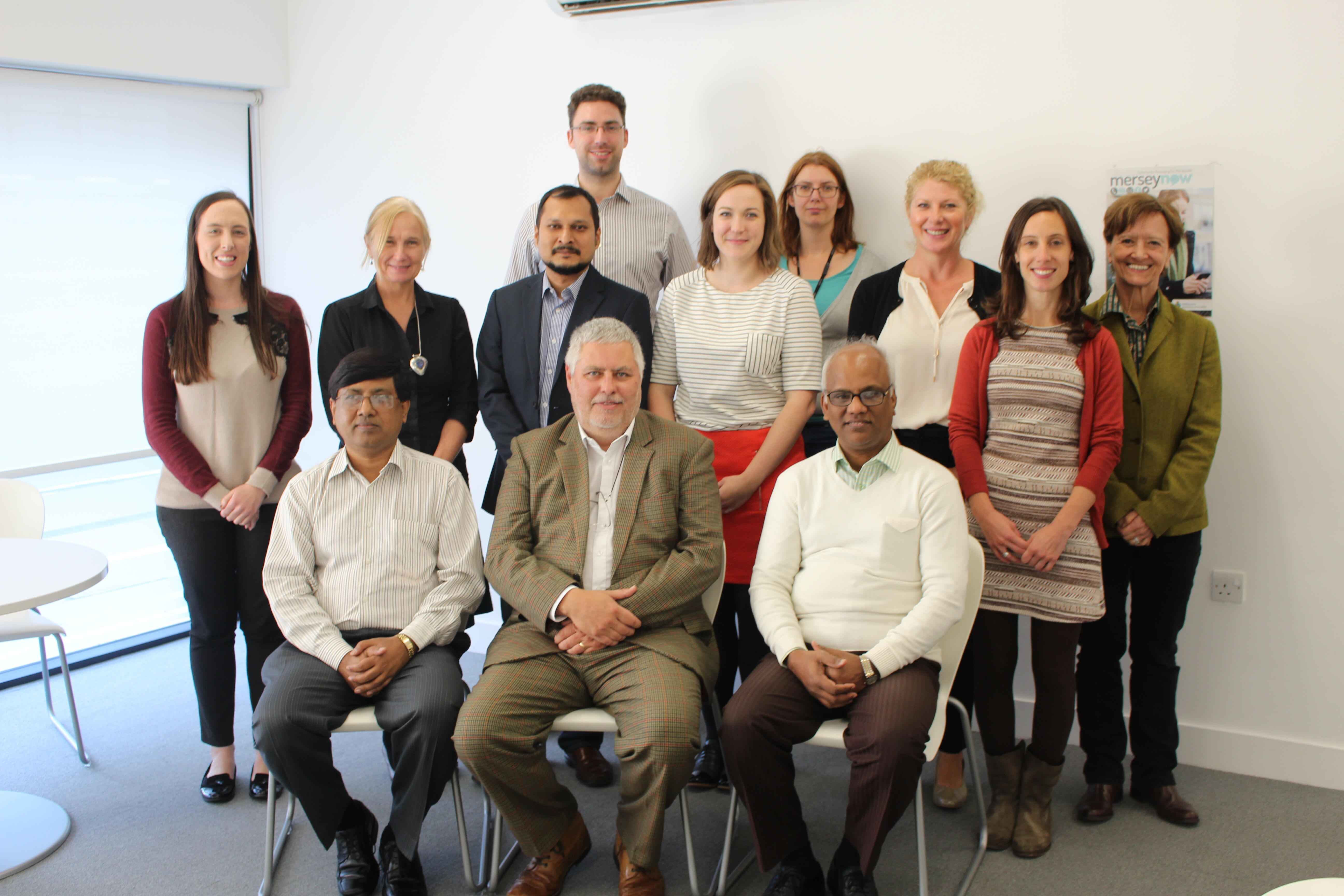
This week LSTM’s Filarial Programmes Support Unit (FPSU) played host to members of the programme team in Bangladesh who visited to review progress, plan future activities and provide some training for the rest of the team.
The Bangladesh Filariasis Elimination Programme (FEP) has been very successful, with all endemic districts now moving from intervention to surveillance and Morbidity Management & Disability Prevention (MMDP) activities. Established in 2000, with the first Mass Drug Administration (MDA) campaign for lymphatic filariasis conducted in 2001, the Bangladesh FEP has been supported by LSTM since its inception, with direct financial support for MDA since 2009 from the DFID funded LF Elimination programme, in coordination with USAID funded organisations.
At the inception of the programme, an estimated 70 million people were at risk of infection. Between 2001 and 2008, MDA was scaled up to cover all 19 endemic districts. By 2011, MDA was scaled down following Transmission Assessment Surveys (TAS) so that by 2015, only one district required MDA. In total over 35 million people were treated in the 19 most endemic districts. This September saw TAS in the final endemic district, Rangpur and the results show that transmission of W.bancrofti is no longer ongoing in this district. While monitoring will continue in all areas to ensure that transmission is not ongoing, in accordance with WHO guidelines, the programme’s success means that the at risk population has been reduced by 70 million people.
FEP has also scaled up morbidity management activities in all 19 districts, conducting patient searching to develop estimates of the number of clinical cases of lymphoedema and hydrocele, as well as training health care workers in community clinics in morbidity management practices, who in turn, will train patients and care givers. In 2016, FPSU provided support for 143 hydrocele surgeries in Bangladesh.
LSTM’s Dr Hayley Mableson is a programme officer in FPSU, she said: “The programme in Bangladesh has been a great success. As well as moving all districts to a position of monitoring, FPSU is also working with the programme to ensure that patients living in non-endemic areas receive care to manage their conditions. LF is a devastating condition which impacts on people living in some of the world’s poorest communities, FPSU is proud to support groups such as that in Bangladesh who are working toward the elimination of the filarial infections and reducing the burden of this and all neglected tropical diseases.”